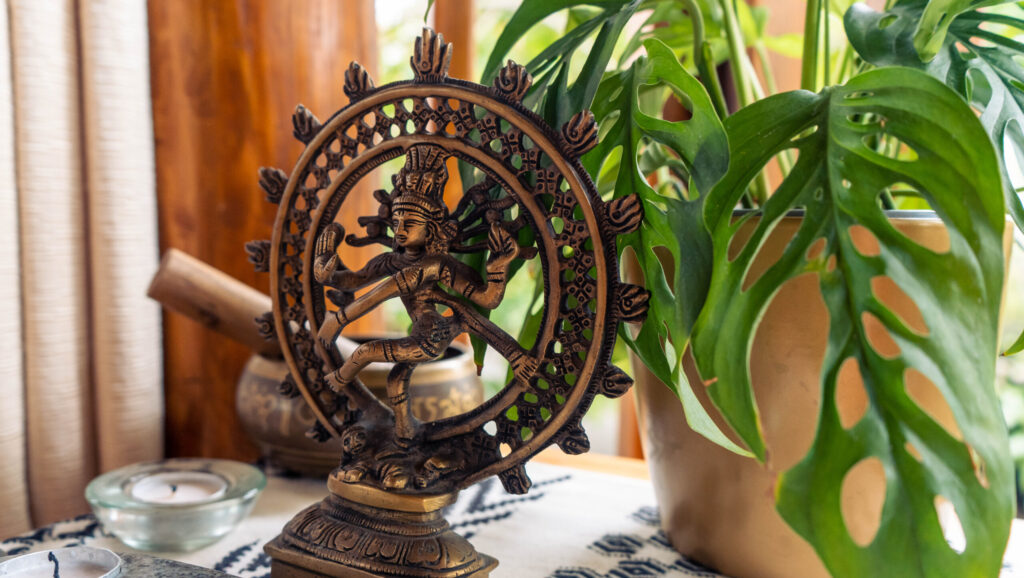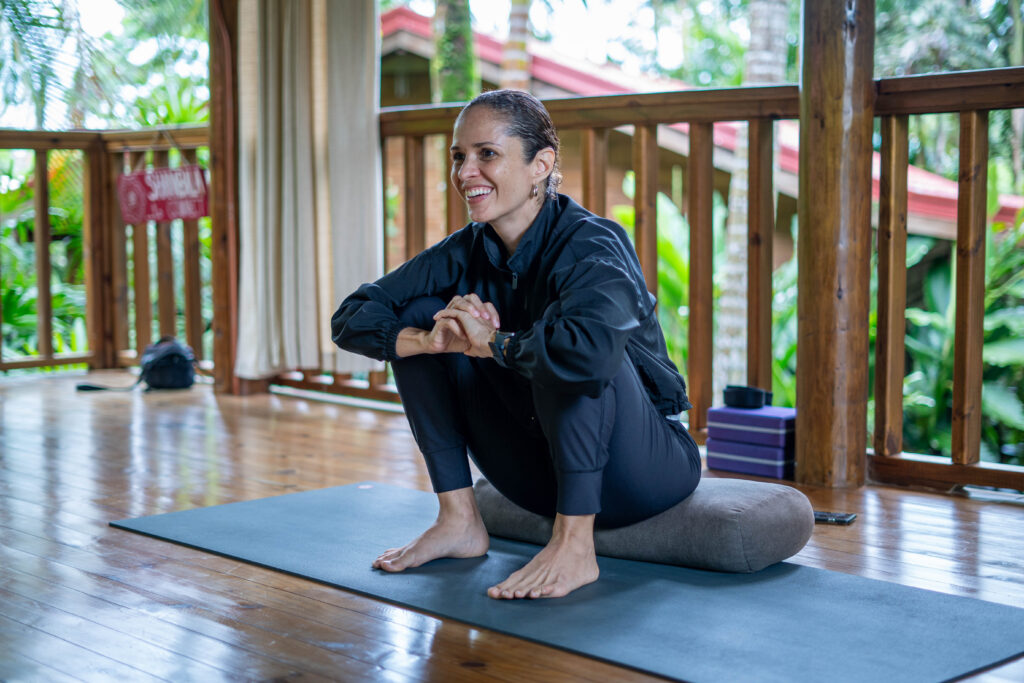Never was there a time when I did not exist, nor you… nor in the future shall any of us cease to be. (Bhagavad Gita: 2.12)
Savasana is the final resting pose at the end of most practices… the moment where the benefits of the breath, movement, and concentration are able to really sink into the body and mind. Translated from Sanskrit, Savasana means “corpse pose”. It is incredibly important to the practice of yoga as it allows for a deep relaxation, and can be a good starting point for learning how to meditate. In this blog, former Bodhi Surf + Yoga intern Samantha Rose describes Savasana from the perspective of a yoga teacher, and highlights some of its defining characteristics. Now more than ever and in moments of stress (personal or collective), it is one of those practices that is very beneficial to incorporate into one’s life.
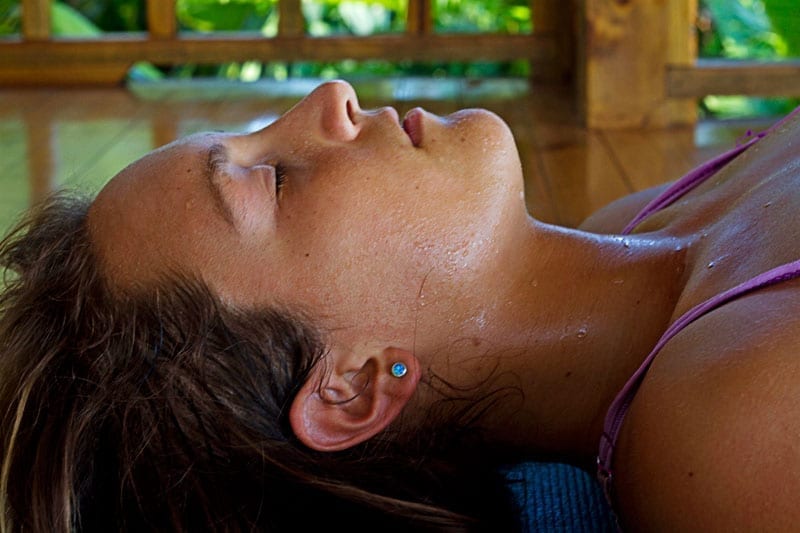
Delicious Savasana…
“And now, we’ll begin to move into Savasana“… the sighs of relief, the joy. It’s been a wonderful Asana practice. I turn off the lights, offer blankets and bolsters, and begin to tuck my students into their hard-earned relaxation. “Feel yourself melting into the mat. You have nothing left to do but relax. Let go of any remaining tension…”
These words are more welcome than any others I have uttered during our 75-minute class. Savasana can feel like coming home, like finally finding your mother after being lost at an amusement park. Only then, safe, can I allow release. Conversely, it can feel like being strapped down and forced to watch yourself squirm while consciousness projects scenes from life’s drama across your mind. Facing the broad spectrum of reality is scary! It demands courage and trust.
How do we get to Savasana?
In the beginning of class, I am typically smiling, despite what lurks beneath the surface. Everyone comes in chatting and cheery, or else serious and ready to work. The beginning of class is grounding and centering, then challenging, peaks, and winds down again. Finally, there comes Savasana, the moment we all await, when we can close our eyes and “let go”. However, relief or horror can emerge in various forms.
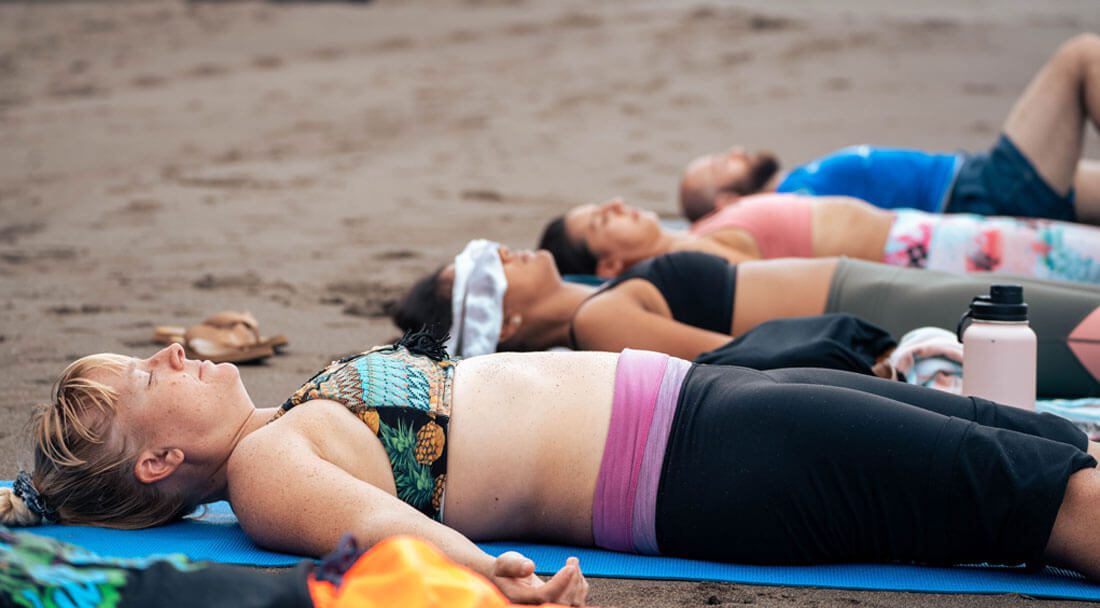
Love or hate Savasana
Through the years, I have experienced a spectrum of emotions during Savasana. There have been moments that I have left the room, quietly wiping tears from my face. Once, a spider hovered on the ceiling above me and decided to slowly lower down toward my head while I attempted to breathe. This time, I practically ran out of the room. Other moments have been blissful, as I have felt full of a bright, healing light, surrounded by bliss. And there have definitely been times when I have felt nothing but neutrality, indifference.
I remember well the moments of terror. Some repressed memory or deep, emotional pain was released from the grooves of my muscles and there I was — lying in silence and flooded with anxiety and confusion. I wanted to run away, and I have. Yet slowly, I have learned that running is a distraction, a temporary denial of the truth. Noticing these varied experiences with awareness has led me to realize this truth: If I am willing to see each emotion, I will grow because I will have the awareness to choose how I react.
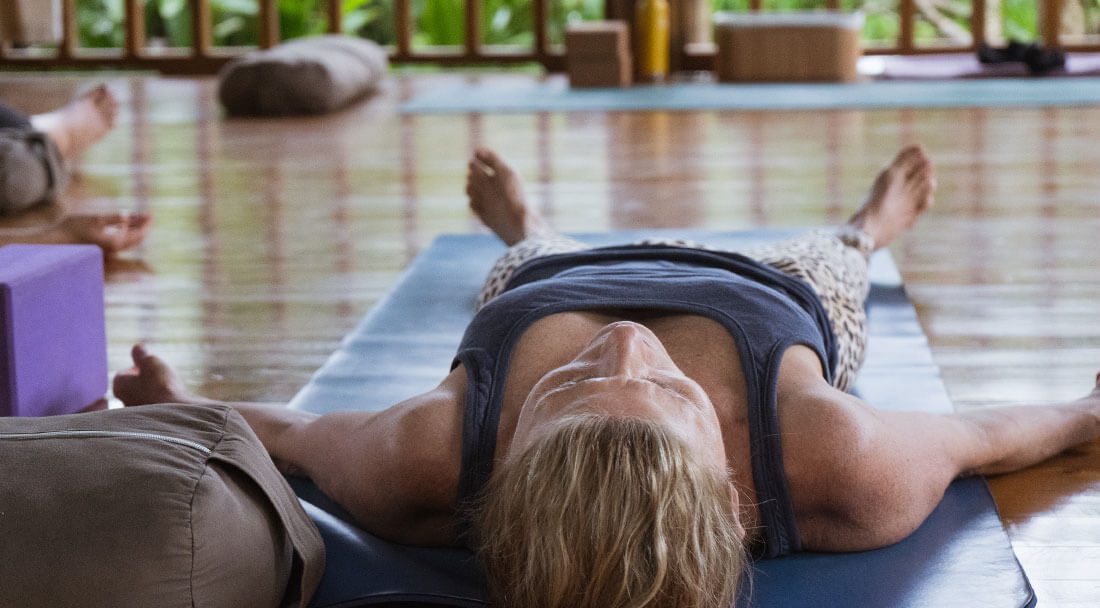
The importance of doing Savasana
Savasana, or “corpse pose,” is practice at being dead. I attempt to drop attachment to my physical bodies, to let go, to lie still without effort. Yet, my mind is aware. I am, ideally, not sleeping. Savasana can first seem like a glorified nap, but in reality, it is not an easy pose for many people. Many struggle with lying still. “Do nothing?! For 5-10 minutes?! But I have to feed the kids! Walk my dog! Check my email!” Similar thoughts come up for me, and if they come up for you, I encourage you to stay.
Consider that maybe you are not too busy to lie in stillness, but too fearful — afraid of what you may encounter if you are alone with your mind. People fill their days to the brim with activity; we need permission to relax. Even when that permission is granted, we struggle. Try listening to Eckhart Tolle, and be “like a cat watching a mouse hole.” Watch your thoughts so vigilantly that you don’t get lost in them. Or try the simple Jivamukti-based mantra of Inhale (Let) — Exhale (Go). Whether it comes naturally or not, you can learn to develop gratitude for Savasana.
Mastering the mind
If I stay, if I breathe, if I simply continue on, I have realized through proof that these obstacles cannot destroy me. Any mental construct — angst, attachment, loss, despair, even horror — is ultimately powerless against your Being because in the end, we are all still here. In all actuality, there is nowhere to run to forever. You remain with yourself. Savasana reminds us of our permanence and of the temporary nature of Life.
This being human is a guest house. Every morning a new arrival.
A joy, a depression, a meanness,
some momentary awareness comes as an unexpected visitor.
Welcome and entertain them all!
Even if they are a crowd of sorrows,
Who violently sweep your house
Empty of its furniture,
Still, treat each guest honorably.
He may be clearing you out for some new delight.
The dark thought, the shame, the malice.
Meet them at the door laughing and invite them in.
Be grateful for whoever comes
Because each has been sent as a guide from beyond.
–Jellaludin Rumi, translated by Coleman Barks
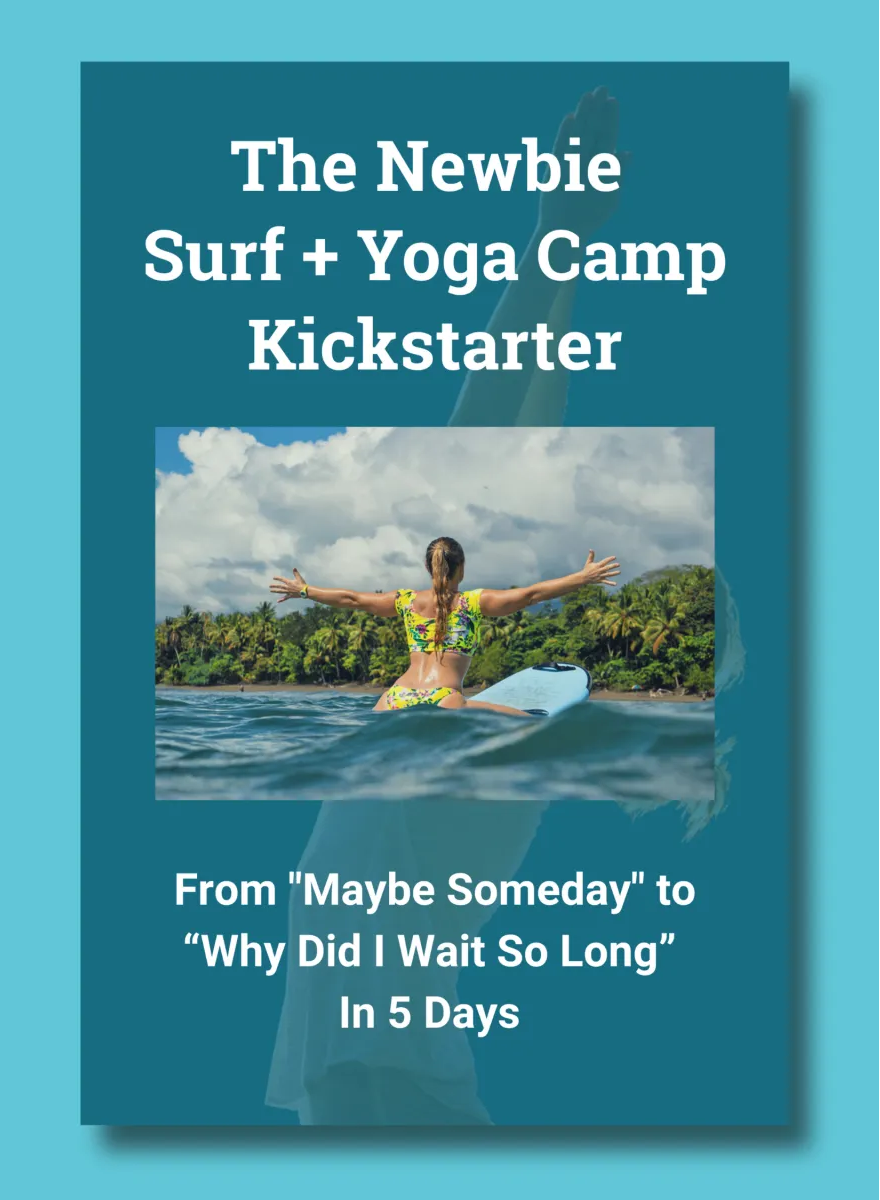
Your Journey Starts Here
Ready to Finally Experience That Life-Changing Surf + Yoga Trip (Without the Overwhelm)?
Bust the 5 biggest myths about going to a surf and yoga camp so you can stop procrastinating and start catching waves - with our FREE 5-day email course.
Change the heading on the Separator tab ->
Search
Get a Toolkit to Create Calm in Your Inbox
Watch the first lesson from our full immersive course: 8 Limbs of Ashtanga Yoga, FREE!
Change the heading on the Separator tab ->
Most Read Blogs
What is the Meaning of Anjali Mudra?
May 27, 2020
Fitness for Surfers: Workouts, Exercises & Training
February 10, 2022
The Best Places to Eat in Uvita, Costa Rica
May 19, 2022
How to Get From SJO to Costa Ballena, Costa Rica
May 31, 2018
Change the heading on the Separator tab ->
Categories
Categories
- Bodysurfing (5)
- Food (8)
- Responsible Business (7)
- Surfing (68)
- Travel (67)
- Yoga (46)
Change the heading on the Separator tab ->
Newsletter
Thanks for subscribing! Please check your email for further instructions.
Change the heading on the Separator tab ->
Follow Us
Bodhi Surf + Yoga
Change the heading on the Separator tab ->
Read more
Ayurveda Series – Mauna: The Yoga of Silence
Words by Pilar
Now this is an interesting one – the yoga of silence. This is Pilar’s fifth blog in her Exploring Ayurveda series, whereby she’s been sharing everything she’s learned along her journey of…
Pilar’s Ayurveda Exploration: Bringing Ayurveda Home
Words by Pilar
We’re thrilled to have you join us for the fourth of Pilar’s Ayurveda series blogs! We’ve already learned so much about Ayurveda – the ancient science of life. In Pilar’s last three…
Ayurveda Series – Cooking with Prana
Words by Pilar
Welcome back! We’re thrilled that you’ve decided to join us as we dive into our third blog in Pilar’s discovering Ayurveda series – Cooking with Prana. Just to jog your memory, Pilar…

